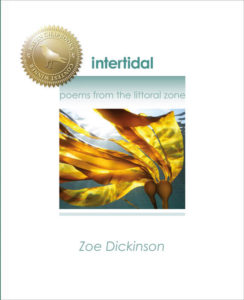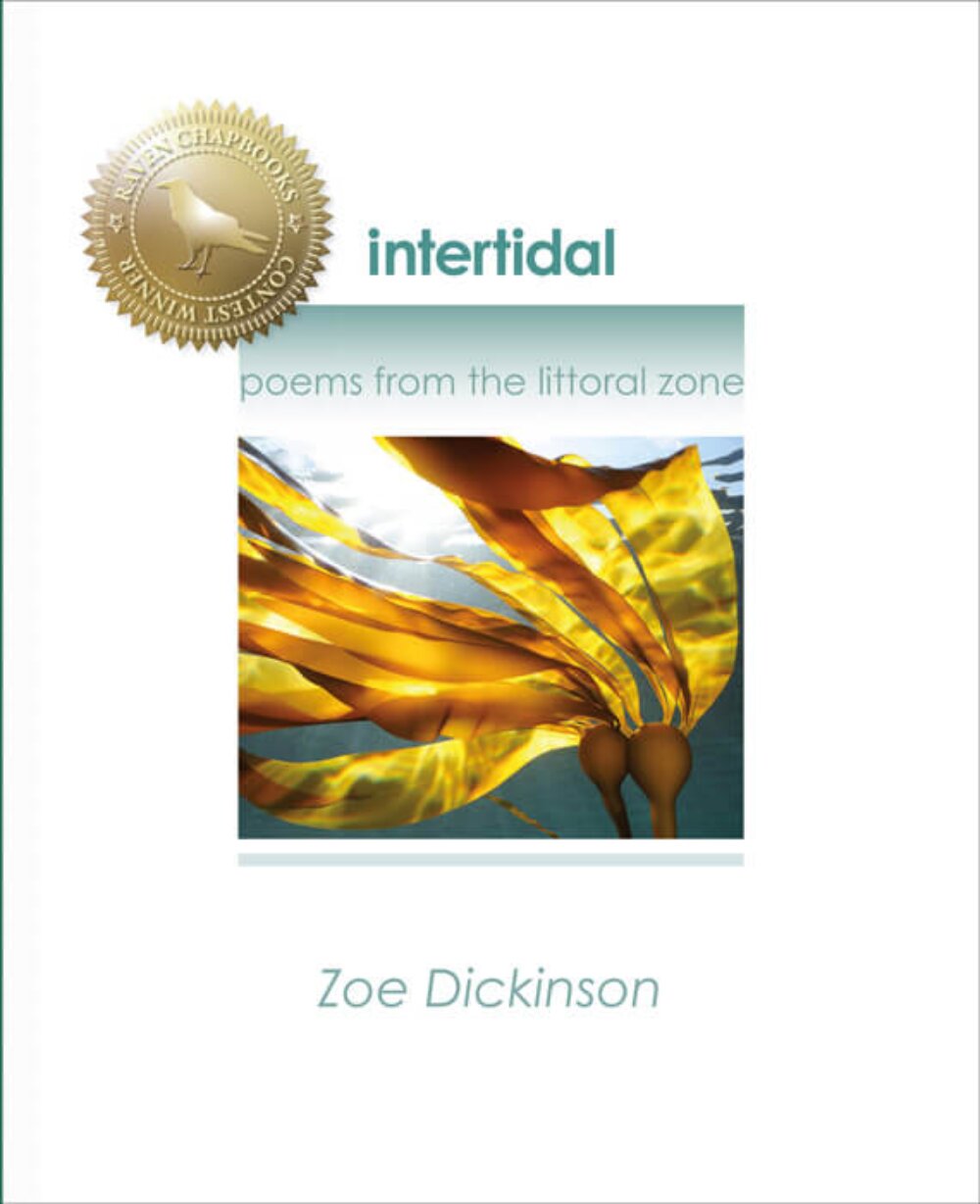By Yvonne Blomer
intertidal: poems from the littoral zone
by Zoe Dickinson
Raven Chapbooks (2022)
The title alone of this slim volume of astonishing poems says much – both intertidal – that is in the between zone of high and low tides – and littoral – that is on the shore. But don’t you misread littoral a little, and see the poems here are literal, as in a literal translation of what it means to live: settler, woman, human, on the shores of the Great and Mighty Pacific on the lands of the lək̓ʷəŋən speaking peoples? And also, to be both between and upon the shore and its ever-shifting state, is to be in these poems which by god are ecological, yes, and pastoral in their view and their vision.
The book begins with “I’d like to start by acknowledging” a poem that takes the land acknowledgments we all do, and we hope we do with care and deep consideration, and really holds it up to the light. The poem notes the facts of our bodies living and thriving on the lands of Indigenous people who are not thriving as they could be, nay would be, without us. It is a brave and bold poem in which Zoe Dickinson’s voice is strong and clear, “I’d like to acknowledge that I mouth words of acknowledgement/ like a spell to ward off colonialism, like/ a cloak to cover how comfortable I am here/ living my life/ on top of an ongoing struggle for survival.”
Poems that follow this strong opening, focus on creatures of the littoral zone, as well as birds, and insects and humans and how we observe and how exist side by side. In the human and the oceanic world – things can be seen in metaphor and in parallel. Can be learned, even, from theses wrack zones. The narrator in these poems is a close observer, and she wonders and questions her seeing and her understanding.
In her poem “Singularity” a seagull approaches, “as the gull saunters toward my French fry” and by the end, after noting and near-entering the bird’s deep gullet and wide maw, she wonders, “how/ can I escape/ the singular pull/ of that hunger.”
Poems throughout are rich with this kind of question, this close observation laid alongside the human wondering and taking in what these sea creatures know instinctively. In “anemone advice” the poem begins, “stand still long enough/ to be mistaken for a flower – / paralyze them/ with their own assumptions.” Yes, my feminist brain says, be tough, hide that strength, trick or disavow, and then pounce and use it.
Dickinson does this again in “nudibranch” and I celebrate her poems and her voice deeply for it, “well, that’s one way to deal with fear:/ instead of getting harder,/ cast off the shell/…what is armour/ but participation/ with the predator?”
Here is a first book, a first chapbook which is the award-winning book for Raven Chapbooks series for 2022. Zoe Dickinson has crafted a collection of lyrical poems both playful and serious that stay with the life forms of the littoral zone but which ignite into pithy, smart and thoughtful statements and understandings of the natural and human worlds. Poems of such brilliance and deep attention can change its reader, just as the mosquito is changed by the blood it takes from us, and we, inadvertently “nourish a constellation of blooms// is proof that even the worst pest / fulfills a purpose in the ecosystem / despite ourselves.”
Yvonne Blomer is the author of The Last Show on Earth (Caitlin Press, 2022) and the editor of Sweet Water: Poems for the Watersheds and Refugium: Poems for the Pacific (Caitlin Press, 2020 and 2017)


